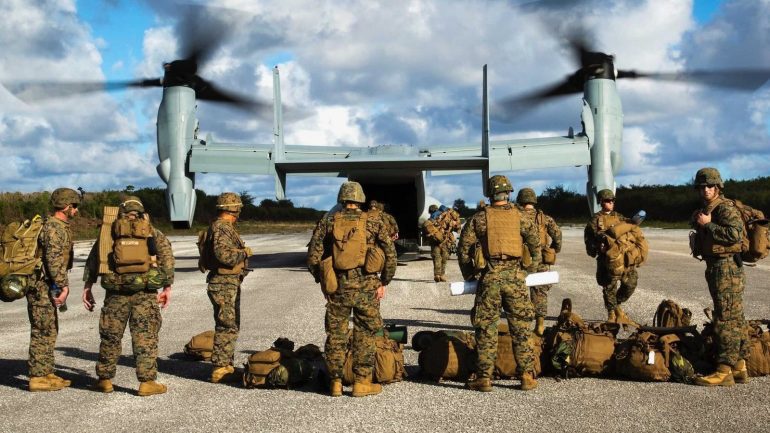- The Marine Corps has launched a new AI strategy to integrate technology across all operations.
- Led by Lt. Gen. Matthew Glavy, the strategy emphasizes AI’s role in enhancing decision-making capabilities.
- Goals include overcoming deployment challenges and fostering responsible AI governance.
- Collaboration with industry, academia, and allies is key to accelerating innovation and interoperability.
- Implementation involves new AI task groups to advise and bridge operational gaps.
Main AI News:
The Marine Corps has introduced a comprehensive new artificial intelligence (AI) strategy designed to fully integrate this transformative technology across all facets of its operations, ranging from administrative efficiencies to tactical battlefield advantages. Lt. Gen. Matthew Glavy, deputy commandant for information, underscored the strategy’s significance, marking it as a pivotal step in the Marine Corps’ digital modernization journey. Against the backdrop of ongoing global conflicts, notably in Ukraine, the strategy highlights AI’s role in accelerating decision-making capabilities crucial for expeditionary operations and engagements in contested environments.
The strategy outlines ambitious goals to overcome existing AI challenges, including alignment with mission objectives, bridging competency gaps, and scaling deployment capabilities effectively. Moreover, it emphasizes the establishment of robust governance frameworks essential for fostering innovation while ensuring compliance with ethical and legal standards—a critical component in the Corps’ commitment to responsible AI development.
Collaboration emerges as a key pillar, with initiatives aimed at strengthening partnerships across Defense Department entities, international allies, industry leaders, and academic institutions. This collaborative approach aims to drive AI innovation, enhance interoperability, and collectively optimize resource allocation across defense initiatives.
A detailed implementation plan, spearheaded by newly formed AI task groups within the Marine Corps, will guide the execution of these strategic objectives. These groups will play a pivotal role in advising commanders, identifying AI use cases, and bridging operational gaps between Headquarters Marine Corps and Fleet Marine Force.
In aligning with national and joint defense priorities, the Marine Corps seeks to maintain its competitive edge amidst the rapidly evolving AI landscape. Leveraging the innovative spirit and expertise of its personnel, both military and civilian, the Corps aims to remain agile, focused, and equipped to execute smart, strategic decisions in future operations.
Artificial intelligence also plays a crucial role in the Pentagon’s overarching Combined Joint All-Domain Command and Control (CJADC2) strategy, aiming to enhance connectivity and data integration across U.S. military forces and allied partners. As other branches of the military pursue similar AI strategies, Marine Commandant Gen. Eric Smith emphasizes the importance of integrating AI into unmanned systems and data-sharing architectures to enhance operational efficiency and effectiveness.
“These advancements are pivotal as we move towards a future where machine-to-machine learning and autonomous systems play increasingly central roles in military operations,” noted Gen. Smith during a recent discussion at the Brookings Institution. “The integration of AI not only enhances our capabilities but also ensures compliance with legal and ethical standards, maintaining human oversight crucial to our operations.”
Conclusion:
The Marine Corps’ comprehensive AI strategy marks a significant leap towards enhancing operational efficiencies and decision-making capabilities. By prioritizing collaboration and responsible AI governance, the Corps aims to lead in AI integration within defense, setting a precedent for future military advancements and potential partnerships with the private sector in AI innovation.

